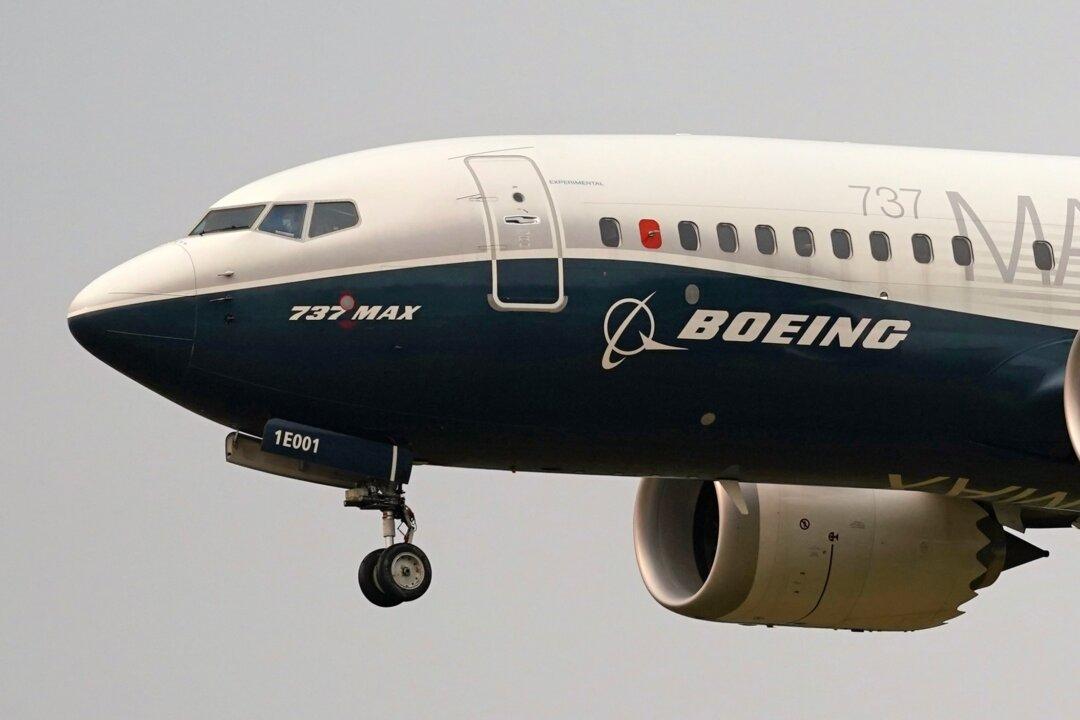Boeing’s 737 MAX 9 passenger jetliners won’t be returning to service any time soon as the Federal Aviation Administration (FAA) stated on Jan. 12 that it won’t allow the planes to be used until the agency is entirely assured of their safety.
The decision to order airlines to immediately stop flying the MAX 9s followed after a “door plug” on an Alaska Airlines plane fell off midair on Jan. 5, shortly after departure from Portland, Oregon, leaving a gaping hole in the fuselage and causing a rapid loss of cabin pressure that caused oxygen masks to drop from the ceiling.





